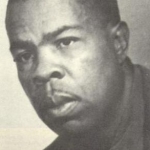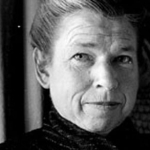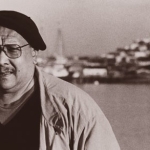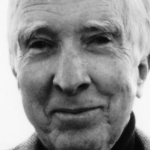“Who is Apollo?” College student
How shall a generation know its story
If it will know no other? When, among
The scoffers at the Institute, Pasteur
Heard one deny the cause of child-birth fever,
Indignantly he drew upon the blackboard,
For all to see, the Streptococcus chain.
His mind was like Odysseus and Plato
Exploring a new cosmos in the old
As if he wrote a poem—his enemy
Suffering, disease, and death, the battleground
His introspection. “Science and peace,” he said,
“Will win out over ignorance and war,”
But then, the virus mutant in his vein,
“Death to the Prussian!” and “revenge, revenge!”
How shall my generation tell its story?
Their fathers jobless, boys for the CCC
And NYA, the future like a stairwell
To floors without a window or a door,
And then the army: bayonet drill and foxhole;
Bombing to rubble cities with textbook names
Later to bulldoze streets for; their green bodies
Drowned in the greener surfs of rumored France.
Still ten years old, his uncombed hair and grin
Moment by moment in the Hürtgen dark
Until the one step full in the sniper’s sight,
His pastor father emptied by the grief.
Clark Harrison, at nineteen a survivor,
Never to walk or have a child or be
A senator or governor. Herr Wegner,
Who led his little troop, their standards high
And sabers drawn, against a panzer corps,
Emerging from among the shades at Dachau
Stacked like firewood for someone else to burn;
And Gerd Radomski, listening to broadcasts
Of names, a yearlong babel of the missing,
Near middle age at twenty-two, to find
A new reunion of the church and state,
Cynical Constantines who need no name,
Domestic tranquility beaten to a sword,
Sons wasted by another lie in Asia,
Or Strangeloves they had feared that August day;
And they like runners, stung, behind a flag,
Hearing of the disaster at Sedan
And the retreat worse than the one from Moscow,
Their son among the missing or the dead,
Pasteur and his wife Mary hired a carriage
And, traveling to the east where he might try
His way to paris, stopping to ask each youth
And comfort every orphan of the state’s
Irascibility, found him at last
And, unsurprised, embraced and took him in.
Two wars later, the Prussian, once again
The son of Mars, in Paris, Joseph Meister—
The first boy cured of rabies, now the keeper
Of Pasteur’s mausoleum—when commanded
To open it for them, though over seventy,
Lest he betray the master, took his life.
I like to think of Pasteur in Elysium
Beneath the sunny pine of ripe Provence
Tenderly raising black sheep, butterflies,
Silkworms, and a new culture, for delight,
Teaching his daughter to use a microscope
And musing through a wonder—sacred passion,
Practice and metaphysic all the same.
And, each year, honor three births: Valéry,
Humbling his pride by trying to write well,
Mozart, who lives still, keeping my attention
Repeatedly outside the reach of pride,
And him whose mark I witness as a trust.
Others he saves but could not save himself—
Socrates, Galen, Hippocrates—the spirit
Fastened by love upon the human cross.
















Comment form: